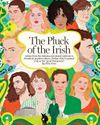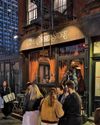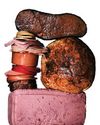
WHEN POPE FRANCIS makes his first trip to the United States this month, he will act on a grand stage much as previous popes have done. There will be a private meeting with the president and public Masses in Washington, D.C.; New York; and Philadelphia. He will address the United Nations. Two aspects of his trip, though, will be unprecedented: He will be the first pope to address Congress, and, equally significant, he will visit homeless people in D.C., underprivileged third-graders in East Harlem, and prisoners in a Philadelphia correctional facility, where he will minister to 100 inmates and their families.
Counterbalancing his meetings with world leaders is a classic Francis move and a potent embodiment of his global agenda. In the two and a half years since his election, Francis has earned a reputation for his simplicity and directness, but the pope from Argentina is also a master of political symbolism and an immensely shrewd politician. He knows that the eyes of all nations will be on the message “the Pope of the Poor” delivers to the world’s richest nation.
The pope’s religious message—that the Gospel should be joyful, merciful, and embrace everyone, especially the poor— is plain and direct. And yet the political strategies he uses to enact that vision are sophisticated and even wily. Inside the Church, he has set out to modernize the Vatican, rooting out corruption and careerism and placing the pastoral care of ordinary people before dogma and rules. Love and inclusion now come before judgment and condemnation. In the larger world, his mission is just as radical: to realign global policy to better aid the poor and excluded. That has included pushing nations to address the prickly issues of climate change and economic inequality.
Esta historia es de la edición Sep 7–20, 2015 de New York magazine.
Comience su prueba gratuita de Magzter GOLD de 7 días para acceder a miles de historias premium seleccionadas y a más de 9,000 revistas y periódicos.
Ya eres suscriptor ? Conectar
Esta historia es de la edición Sep 7–20, 2015 de New York magazine.
Comience su prueba gratuita de Magzter GOLD de 7 días para acceder a miles de historias premium seleccionadas y a más de 9,000 revistas y periódicos.
Ya eres suscriptor? Conectar

Trapped in Time
A woman relives the same day in a stunning Danish novel.

Polyphonic City
A SOFT, SHIMMERING beauty permeates the images of Mumbai that open Payal Kapadia's All We Imagine As Light. For all the nighttime bustle on display-the heave of people, the constant activity and chaos-Kapadia shoots with a flair for the illusory.

Lear at the Fountain of Youth
Kenneth Branagh's production is nipped, tucked, and facile.

A Belfast Lad Goes Home
After playing some iconic Americans, Anthony Boyle is a beloved IRA commander in a riveting new series about the Troubles.

The Pluck of the Irish
Artists from the Indiana-size island continue to dominate popular culture. Online, they've gained a rep as the \"good Europeans.\"

Houston's on Houston
The Corner Store is like an upscale chain for downtown scene-chasers.

A Brownstone That's Pink Inside
Artist Vivian Reiss's Murray Hill house of whimsy.

These Jeans Made Me Gay
The Citizens of Humanity Horseshoe pants complete my queer style.

Manic, STONED, Throttle, No Brakes
Less than six months after her Gagosian sölu show, the artist JAMIAN JULIANO-VILLAND lost her gallery and all her money and was preparing for an exhibition with two the biggest living American artists.

WHO EVER THOUGHT THAT BRIGHT PINK MEAT THAT LASTS FOR WEEKS WAS A GOOD IDEA?
Deli Meat Is Rotten